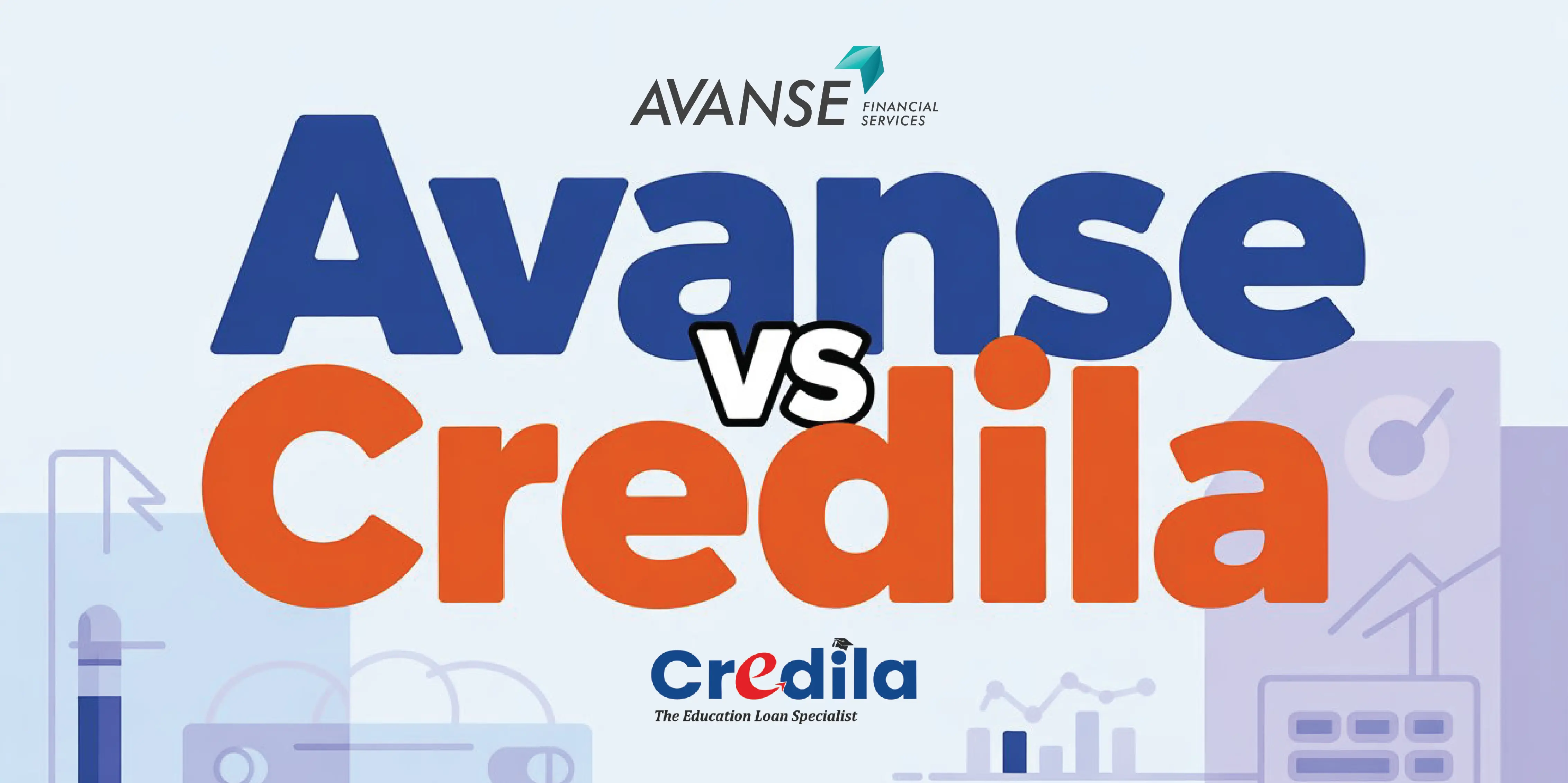https://www.wemakescholars.com/blog/impact-education-loan-co-applicant-on-home-loans
How Co-Signing an Education Loan Affects Your Home Loan Application?
Abroad Education Loan | Updated on ()

Education loans have become the primary source of funding for many students to finance their higher education in India or abroad. These loans typically require a co-applicant, usually a parent or the legal guardian, to sign the loan agreement alongside the student.
Parents or family members who co-sign their child’s education loans often have queries such as ‘Do student loans affect home loans?’ and ‘Does being a co-signer affect buying a house?’. Being an education loan cosigner can affect your home loan eligibility.
In this article, we have covered the impact of being a student loan co-signer on home loans. We have also included several tips to help you secure a home as an education loan co-applicant.
Who is a Co-Applicant in an Education Loan?
A co-applicant in an education loan is a person who cosigns the loan agreement and shares the loan responsibility alongside the student. They will be responsible for repaying the student loan debt if the student, for any reason, doesn’t do so. Lenders consider the income and creditworthiness of the co-applicants before processing an education loan.
An education loan co-applicant is typically a parent, legal guardian, or an immediate family member of the student. However, the co-applicant eligibility for education loans varies by lender.
What Banks Consider for Home Loan Applications?
Being a co-applicant for a student loan impacts your eligibility for a home loan. When you apply for a home loan, banks consider your financial details, including all your existing liabilities, income, and credit score, to understand your repayment capacity.
Banks also consider the Fixed Obligation to Income Ratio (FOIR) norms while providing home loans. Banks can reject the home loan applications that do not meet the FOIR norms. A lower FOIR indicates a person’s obligations, i.e., the EMIS of existing debts, such as a credit card, student loan, and other credit lines, are higher than how much they can afford.
And as we have discussed, an education loan co-applicant shares the loan responsibility along with the student. This means that when you co-sign an education loan, it is considered your liability and affects your FOIR. It can also impact your credit score, which ultimately affects your eligibility for a home loan.
Impact of Being an Education Loan Co-Applicant for Home Loan Application
Here’s how being an education loan co-applicant affects your home loan application:
- Impacts credit score: As we have discussed before, banks consider your credit score to process your home loan application. Assessing the credit scores of individuals helps banks understand the risk of offering loans to them. And an education loan, just like any other credit service, affects the credit history of everyone involved in the loan, including the co-applicant. If the student misses any repayments on their education loan, it can reduce the CIBIL score of both the co-applicant as well. This reduced credit can significantly impact your home loan application.
- Affects the DTI ratio: Your Debt-to-Income (DTI) Ratio plays a major role in your home loan application. Banks evaluate your DTI ratio before processing your home loan application. It helps them compare your total debts and income to understand your repayment capacity. When you cosign an education loan, it can increase your DTI ratio and negatively impact your home loan eligibility.
- Unfavourable Loan Terms: An increased DTI ratio and reduced credit score due to co-signing a student loan can result in unfavourable loan terms, such as low loan amounts and higher interest rates.
- Possible Rejection: In some cases, if the CIBIL significantly drops and the DTI ratio exceeds the bank's acceptable range, it can even lead to home loan rejection.
How to Manage Student Loan Co-Applicant Impact on Home Loans
The following are several tips you can use to get a home loan even as a co-applicant for an education loan:
- Make Timely Payments on the Education Loan: Making timely payments on the education loan can improve your CIBIL score and boost your home loan eligibility.
- Close the education loan: Closing the student loan before applying for a home loan eliminates the impact of being a co-applicant on your home loan application.
- Maintain a strong credit score: When you maintain a strong CIBIL score, it can reduce the effect of co-signing a student loan on your home loan application. Make timely payments on your credit services, such as credit cards and your child’s student loan, to improve your credit score.
- Transfer the Education Loan: Transferring your child’s education loan can help reduce the interest rate, as most lenders offer a lower rate of interest for student loan takeovers than fresh loans. This lowered interest rate reduces your DTI ratio, increasing your chances of getting a home loan.
WeMakeScholars can help you transfer your child’s student loan. When you take an education loan from us, our dedicated Education Loan Transfer team has the expertise to help you transfer your student loan and bring down your interest rate. Request a callback today to get in touch with our team. - Add a co-applicant for the home loan: It is one of the most effective ways to secure a home loan, even after co-signing an education loan. When you add a co-applicant with a high credit score and income on your home loan application, the bank will consider both your and your co-applicant’s income and credit score, improving your chances of getting a home loan.
Should You Avoid Being a Co-Applicant?
Although co-signing a student loan can impact your home loan eligibility, you don’t necessarily need to avoid being an education loan co-applicant.
- Education loans in India offer a moratorium period of the course duration plus 6 to 12 months. During this period, the repayments of the loan do not start.
- This means that your CIBIL score and DTI ratio cannot be affected due to the student loan during this period.
- And the student loan doesn’t affect your credit score and DTI ratio unless the student skips or stops their repayments.
- As long as the repayments are made on time, you can secure a home loan even after being an education loan co-applicant.
WeMakeScholars Advice for Education Loan Co-Applicants
WeMakeScholars is an organization dedicated to providing the best education loan guidance and support to students. We provide complete student loan guidance to answer all your queries about education loans.
We often receive queries about the consequences of co-signing an education loan, such as ‘Does being a co-signer affect buying a house?’ and ‘How do student loans affect home loans?’. To improve your chances of getting a home loan as an education loan co-applicant, you should:
- Carefully read the terms and conditions of the loan before co-signing.
- Create a budget that can help you manage your repayments.
- Maintain a high CIBIL score to improve your home loan eligibility.
- Do not take too many loans, as it can increase your Debt-to-Income (DTI) ratio.
- Make timely payments on your credit lines to avoid lowering your credit score.
Navigating education loans to fund your child's studies can be quite challenging, with different lenders offering varying terms. As an organisation partnered with over 15 public and private lenders, our experienced team can help you find the best education loan for your child.
Request a callback today so that our team can help you find the most suitable loan for your child’s higher studies. And since WeMakeScholars is an organization funded and supported by the Ministry of IT, Government of India, we offer our services completely free of cost to students.
Conclusion
Being an education loan co-applicant is a huge financial decision as it can impact your home loan eligibility. Co-signing your child’s student loan can affect your credit score and Debt-to-Income (DTI) ratio, which ultimately impact your ability to secure a home loan. However, it doesn’t necessarily mean you won’t be able to secure an education loan.
With careful financial planning, you can secure a home loan even as a cosigner on your child’s student loan. WeMakeScholars advises education loan co-applicants to maintain a high CIBIL score and make timely payments on other credit services to increase their chances of securing a home loan.





Kindly login to comment and ask your questions about Scholarships & Education Loans